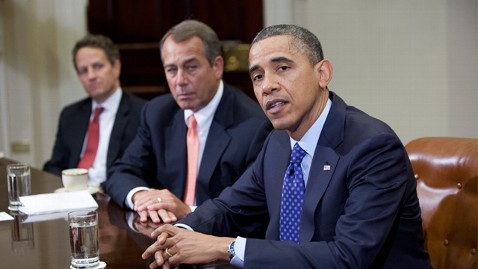The Supreme Court's announcement that it would hear two cases challenging laws prohibiting same-sex marriage has reinvigorated one of the most hotly contentious social debates in American history, a debate that has been fueled by a dramatic change in attitudes.
With some states taking significant steps towards legalizing gay marriage, the hearings come at a critical moment.
This week in Washington State, hundreds of same-sex couples lined up to collect marriage licenses after Gov. Christine Gregoire announced the passing of a voter-approved law legalizing gay marriage.
"For the past 20 years we've been saying just one more step. Just one more fight. Just one more law. But now we can stop saying 'Just one more.' This is it. We are here. We did it," Gregoire told a group of Referendum 74 supporters during the law's certification.
Washington is just the most recent of several states to pass legislation legalizing same-sex marriage, signifying a significant departure from previous thinking on the controversial subject.
READ: Court to Take Up Same-Sex Marriage
A study by the Pew Research Center on changing attitudes on gay marriage showed that in 2001 57 percent of Americans opposed same-sex marriage, while 35 percent of Americans supported it.
The same poll shows that today opinions have greatly shifted to reflect slightly more support for same-sex marriage than opposition -- with 48 percent of Americans in favor and 43 percent opposed.
In fact, just two years ago, 48 percent of Americans opposed same-sex marriage while only 42 percent supported it -- indicating that opinions have changed dramatically in the last couple of years alone.
David Paul Morris/Getty Images
Supreme Court Set to Tackle Same-Sex Marriage Watch Video
Gay Marriage: Supreme Court to Examine Marriage Equality Watch Video
Marijuana, Gay Marriage Win in 2012 Election Results Watch Video
Check Out Same-Sex Marriage Status in the U.S. State By State
It's hard to imagine that only 16 years ago, the fervent gay marriage debate led to the conception of the Defense of Marriage Act, which defines marriage as a union solely held between a man and a woman.
While debating the Defense of Marriage Act in September 1996, former Sen. Robert Byrd said: "If same-sex marriage is accepted, then the announcement will be official: America will have said that children do not need a mother and a father. Two mothers or two fathers will be OK. It'll be just as good. This would be a catastrophe."
Even a few short years ago a newly-elected President Obama did not support the legalization of gay marriage. It wasn't until earlier this year, at the end of hiss first term and with the impending election in sight, that the president told ABC's Robin Roberts the he'd "been going through an evolution on this issue."
Obama went on to attribute his shift in stance to the influence of his daughters.
"You know, Malia and Sasha, they've got friends whose parents are same-sex couples. It wouldn't dawn on them that somehow their friends' parents would be treated differently," he said. "That's the kind of thing that prompts -- a change in perspective."
Obama isn't the only one to experience an evolution in thinking on the matter of gay marriage. Attitudes towards same-sex marriage have shifted dramatically over the past decade across the board, particularly in the past few years.
Gone are the days when a majority of people opposed same-sex marriage; the days when gay politicians and supporters of same-sex marriage could not get elected.
Get more pure politics at ABCNews.com/Politics and a lighter take on the news at OTUSNews.com
Today, nine states and the District of Columbia allow same-sex unions -- a number likely considered inconceivable just a few short years ago. And yet, the same-sex marriage debate still begs for the answering of a question: Will this newfound public opinion, largely driven by young people, women and Democrats, have an effect on the Supreme Court's ultimate decision on the matter?
"I think (gay marriage is) just not a big deal for a lot of young people," Elizabeth Wydra of the Constitutional Accountability Center says. "The justices are human beings so they're not completely immune to public opinion. ... I think the real question for them is going to be do they want to be on the wrong side of history?"










